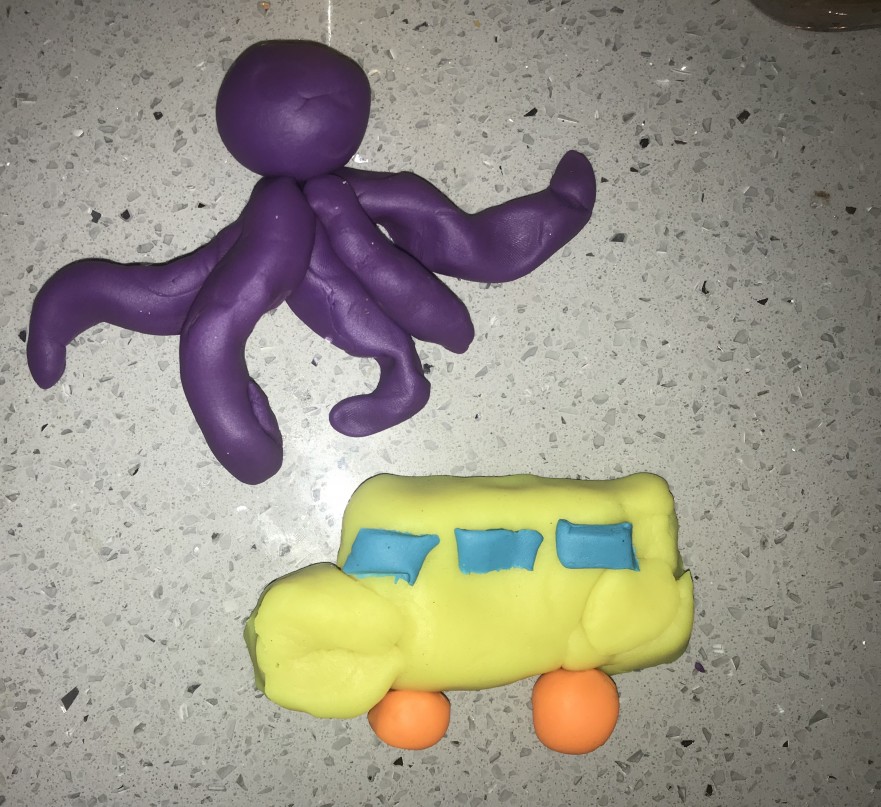It is the 30th (gulp) anniversary of The Little Mermaid this week. I want to describe a scene to you that copyright law precludes me from simply displaying. In Ursula’s lair, there are dozens, nay, hundreds of creatures that with a cursory glance may appear as strands of seaweed undulating in the cave. However, as the scene unfolds a viewer can make the eerie realization that these are wilted creatures that were former sentient beings who Ursula now held captive after they, presumably, could not meet the conditions of their deals. They seem to gasp and attempt to grasp for the drag-queen-inspired character Ursula.
This is what walking around an honors English class on the day of an essay deadline is like. I saunter around with an air of magic, taking drab introductions and making them fab. Do I help these poor, unfortunate souls? But of course! Everyone raises their hand wanting feedback and ideas for improvement before they submit. I realize this analogy makes me a curvaceous sea witch, and in analysis that might be accurate; Ursula was misunderstood after all.
Recently, my students approached a firm deadline as part of the culmination of eight weeks of reading Fahrenheit 451. Pre-reading, discussions, assignments, tests, and auxiliary article analysis lead students to a deadline on their first full essay of the year. The essay carries a lot of weight, and will prepare them for district exams, and higher level courses in high school. It is perhaps the single most salient assignment of the semester. Suffice to say, the sentient seaweed tentacles were a flurry.
The deadline was 3:30 PM. They had the full class period, plus an hour after school if needed. In the midst of students grasping toward me, I noticed a student who had struggled with deadlines in the past rather imperturbable in the back of the room. I went to check in with him as he studied vocabulary flash cards.
I asked him if he was done, and he sighed and explained that he wasn’t done, and he had left all his notes at home. He knew he could not complete the work by the deadline, so instead of asking for help or for asking for an extension, he accepted the deadline and crouched into studying for an inconsequential quiz forthcoming.
I pulled up a chair, and began with a comment about how he should have alerted me at the beginning of the hour if he expected help. But then it occurred to me: he did not expect help. He had made a mistake. He took ownership of his mistake and was accepting his consequence.
I shifted gears.
“Can you stay after school, so we can talk about this and work something out?” I asked.
“No. I can’t stay after,” he muttered.
“Why not?”
“I have to take the bus or else I can’t get home”
“You know the school has a late bus that leaves at 4:00?”
“… No…”
We are closer to the end of the semester than we are the beginning of school, and this student does not know that there is a resource created for students like him to succeed. This particular student has an “A” in every course he is taking except his two honors classes. He is wise and respectful. He lacks support at home that many honors students have, but is as astute as any other of my students.
He didn’t want to bother me with a dumb question, he said. He said he didn’t want to distract me from helping the responsible students who hadn’t forgot their notes at home. They “deserved” my help more, he said.
After he realized it was possible to get a later ride, he agreed to stay. I told him we didn’t need to finish, but we needed to use our time wisely. The deadline was arbitrary anyway, I told him. As the other students drifted out of the room who had also stayed late, we began talking about how the other students intimidate him. He told me that the other students possess confidence that makes him feel out of place. In response, I asked to see what he had produced in his little time he took reworking the essay. Afterward, I told him they may have confidence, but they don’t have his insights.
When I complimented his writing, his postured changed, his eyes got bright and a smile lurked onto his face. Without a doubt, he belongs in my honors class. Without a doubt, he rivals his peers in analysis and deep thought.
He left school on the late bus with a plan to get work done – to demonstrate that he is a capable and intelligent writer. He arrived the next day with a completed essay. I haven’t graded it yet, but I am sure it will be successful, and certainly better than him taking a zero.
My point of this breakthrough with this student is the blind spot he illuminated for me. I work tirelessly to support my students and anticipate their needs. As a Title 1 School, we have funding for a host of programs and resources to help students exactly like him. However, now I wonder exactly how many polite, quiet, and timid students would stay after for help or study time if they simply knew we had a ride waiting for them?
I could shrug my shoulders; I could pass the buck. But, I teach 193 freshmen all figuring out their new home. We have so much to offer. So many people work so hard to help each one of these pupils.
I have explicitly worked with my dear friend and colleague who is our school’s Title 1 coordinator to bring resources to my room and to educate students about our offerings. But now I wonder, what else have we missed? How else can we leverage systems already existing to uplift these bright minds?
King Triton had many rules in place “Under The Sea;” he let a lot of things happen without his oversight or checking in. He almost lost his daughter because when she asked for help, he declined her request without conversation. Left to figure it out on her own, Ariel made a series of questionable choices. This is not unlike our students. They may figure it out; they may not.
Maybe I’m oversimplifying a plot here, but I am happy to lean Team Ursula if Team Ursula entails problem solving and helping teenagers get where they want to go.
I’m ready to plan my Ursula-inspired Title 1 resource class lesson. I am ready to partner with colleagues and tweak it next year, and move it up earlier. We have the resources; we just need to make sure that when we scaffold lessons and units, we educate students on all our school has to offer and can’t hope the students figure it out on their own.
How can you help students at your school? What outside-of-content scaffolds have you implemented already? Share some thoughts in Fathoms, err… comments below.










Comments 4
Ursala is my favorite character….she has the BEST song! We often assume that because something was covered during orientation or in the morning announcements, students retain it. At the elementary level, we are trying to figure out more/better ways to reach parents and let them know of the resources available to them and their students. I guess in some ways all learning is like preschool….repetition, repetition, repetition!
I really enjoyed this piece James. It reminds me of TLI 2019 and Cornelius Minor’s thoughts on “deservedness” and how those feelings can prevent equity if teachers get too stuck deciding who deserves their extra attention. Way to set the deadline aside and empower a student to see his own gifts and connect with resources to help him succeed. Powerful!
Also, nice playdough art
I was chuckling over what seemed like a hilarious, light-hearted post and then BAM! You nailed me with all the feels about your sweet student and your kindness, caring and attention to him You are a perfect example of a teacher showing empathy to students. Also, Ursula is my favorite Disney villain!